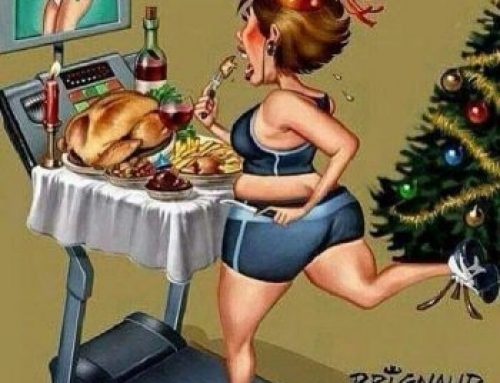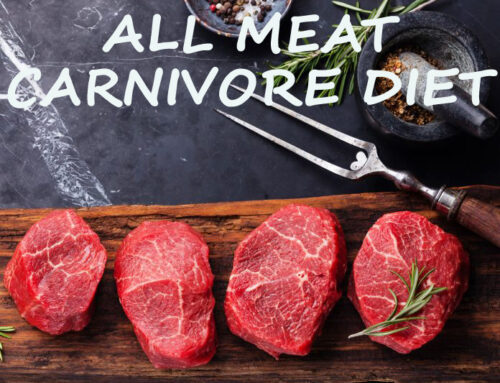Do you need to count calories on a low-carb or ketogenic diet?
Answer: Yes.
I could end this blog post right there but I wont.
So yes the simple answer is that you do need to count calories and calories count, no matter what you have heard otherwise; this is a fact.
The long answer.
The biggest misconception of the ketogenic diet is that you do not need to track calories and track macros and that calories really do not matter as long as you eat low carb. Some have gone as far as making claim that you can “eat as much as you want and still lose fat” as long as you are eating low carbs.
This error in this thinking dates back decades ago when Dr. Atkins would preach that you do not have to worry about calories on a ketogenic diet BUT that does not mean they do not matter or that they do not count.
What Dr. Atkins was trying to explain is that because a ketogenic diet (with adequate protein) has very strong appetite suppressing effect; it makes you naturally eat less. So while his statement of not worrying about calories is true, he means that you won’t eat enough that it will be a problem or better yet it is hard to eat too much on this diet because of the satiating effects of the diet.
“A hierarchy has been observed for the satiating efficacies of the macronutrients protein, carbohydrate and fat, with protein as most satiating and fat as least satiating.” ref: https://www.ncbi.nlm.nih.gov/pubmed/17824197
Unfortunately too many people took this to mean you can eat all you want and lose weight. This then became a catchphrase in marketing of diet books. Just think how many books/diets one can sell if the title says “Eat all you want and lose weight”. Lots of unethical salesman out there made and still make a fortune over this claim.
If you eat too much of anything you won’t be able to lose weight, whether it is zero carbs or hundreds of grams of carbs. Energy Balance/Calories is the main predictor of fat loss/fat gain and millions upon millions of dollar have been spent on medical ward studies proving this.
Energy intake that exceeds energy expenditure is the main driver of weight gain: https://www.ncbi.nlm.nih.gov/pmc/articles/PMC5325830/
Total energy intake remains the dietary predictor of body weight: https://www.ncbi.nlm.nih.gov/pubmed/26413954
Low Carb vs Low Fat weight loss
One of many examples/studies proving that energy balance or calories matter is a 12 week study, directed by Penelope Greene of the Harvard School of Public Health where they compared weight loss on a low carb diet vs those on a standard low fat diet.
In the study, 21 overweight volunteers were divided into three categories: Two groups were randomly assigned to either low fat or low-carb diets with 1,500 calories for women and 1,800 for men; a third group was also low-carb but got an extra 300 calories a day. The low-carb meals were 5 percent carbohydrate, 15 percent protein and 65 percent fat. The rest got 55 percent carbohydrate, 15 percent protein and 30 percent fat. So this was a true ketogenic diet at 5% carbs. In the past studies have failed to have a true ketogenic diet as one of the study groups, this one did not make that mistake.
In the end, everyone lost weight.
Summary:
- Low carb group 1500 and 1800 calories (women vs men) – avg “weight loss” was 23lbs.
- Low fat group 1500 and 1800 calories (women vs men) – avg “weight loss” was 17lbs.
- Low carb group 1800 and 2100 calories (women vs men) – avg “weight loss” was 20lbs.
As we all know a ketogenic diet leads to a lot of water loss in the early stages of the diet, so that is what we are seeing with these results, the extra 6lbs “weight loss” is often attributed to the water loss in the first few weeks of the diet. The other factor is the satiating effects of protein (you end up eating less) and higher Thermic Effect of Food plus the fact it is near impossible to store excess protein as fat results in higher weight loss for those who eat more protein, NOT those who eat less carbs. It is always the protein.
The thermic effect of food is the caloric cost of digesting and processing different macronutrients. Protein has a thermic effect up to of five times greater than carbohydrates or fat. The average person will burn up to 30 percent of the calories in protein foods just to process them. Carbohydrates thermic effect averages between 15 and 20 percent of the calories in those foods. Fats only have a thermic effect of only 2 to 3 percent. This means that your net caloric gain from fats averages 97 to 98 percent of their total calories, compared with a net caloric gain of about 70 percent of the calories in protein.
So any low carb diet that looks like it is superior to the weight (fat) loss of a low fat diet in fact has zero to do with the low carb intake, but everything to do with protein intake. Most diet comparison studies do not match protein and calories, if they did then the “fat” loss (not water weight) results would all be the same; low-fat, low-carb, high-carb, high-fat as long as protein is matched as well as calorie intake.
Calories matter
So back to the study results above. It indeed proved that calories matter, the lower calorie low-carb group LOST MORE weight than the higher calorie low-carb group. Dismissing the myth that calories do not matter on a low-carb/ketogenic diet.
Do you have to count calories and track your macros
So the question still needs to be answers – do you have to count calories on a ketogenic diet. Yes and No.
Whether or not you’re actually counting calories, your body is counting calories.
Basically what that means is you can’t eat over what your body’s maintenance caloric level is and think you’re not going to gain weight. For those who do not track calories yet are able to lose weight, it is like saying you never look at the gas gauge on your car and you never run out of gas…that doesn’t mean that you have special magic abilities that just means you got lucky and you got gas in time before you ran out.
So by you not actually counting calories is fine but that means you’re staying under maintenance and that’s why you’re able to lose weight. Until you stall….
Not counting calories and stalling on a ketogenic diet
It is inevitable for a ketogenic dieter to hit a stall and after working with thousands of low carb ketogenic dieters who have stalled, we see that once they start tracking every calorie they eat and start making adjustments to reduce calories they break the stall and start losing weight again. So it turned out they were eating too much. This again shows why calories matter on a ketogenic diet or any diet for that matter.
Do only calories matter?
So are calories the only piece of the puzzle, the only part of the equation of fat loss? No but it is the #1, main predictor of weight loss; energy balance. Hormones, genetics, body type, food allergies, inflammation etc all play important yet small role in the overall equation but hormones and genetics will never come before energy balance nor with the hormonal response to a meal or type of calorie eaten supersede the weight loss effects of a calorie deficit.
If you find that your weight loss has stalled and you have not been tracking your calorie intake, this is a good sign that it is time to count and track your food intake and make adjustments to start losing again.





